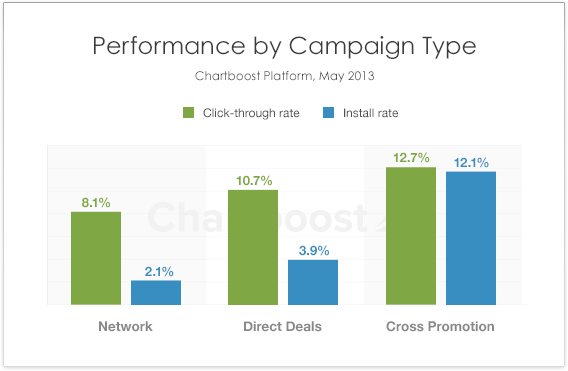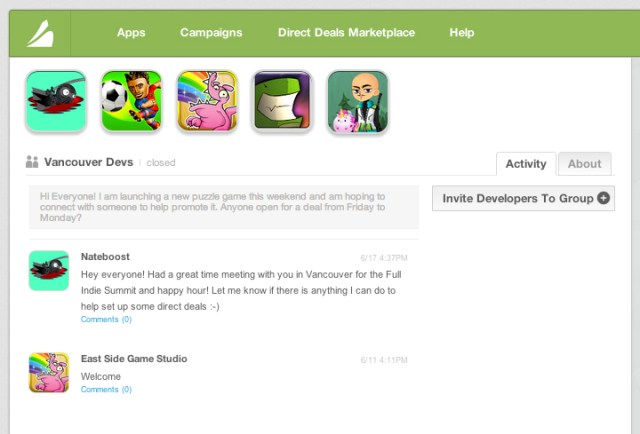Chartboost, a platform that helps game developers promote each others’ titles, is opening a ‘Groups’ feature where multiple developers that want to partner up from a specific country, incubator (or wherever, really) can do direct deals.
The San Francisco-based company has quietly built a formidable network incorporating 16,000 games and 8 billion ad impressions per month. They started out by facilitating advertising trades between mobile game makers and helping developers cross-promote titles within their own network of apps. They earn revenue by selling remnant inventory.
The company’s CEO Maria Alegre said the company started getting feedback that groups of four or five developers wanted to trade with each other, instead of doing one-to-one deals. She says indie developers might want to partner up in one group, or game makers from a specific geographic region might want to work together.
“We find that these partnerships are usually based around friendships,” she said. “They might have met at this incubator or at GDC [Game Developers’ Conference]. Or they might just respect each other’s work.”
Alegre says that direct deals perform better than typical mobile advertising campaigns. A click-through rate on a direct deal between two different developers is about 10.7 percent, compared to 8.1 percent on a regular network. If a developer cross-promotes their own titles to existing players, the click-through rate is even better at 12.7 percent.
She says the practice has become so popular that about 71 percent of the publishers Chartboost works with are doing direct deals.
“Basically, direct deals have become a required tool for any big developer that needs to do user acquisition,” she said.
They also can have a leveling effect on the entire mobile gaming ecosystem, with indie developers being able to partner up and have similar network effects as bigger game developers like King or Kabam.
“The vision of Chartboost is — instead of first having to make enough money to build a platform team or network tech, we’ll give that technology for free to anyone,” Alegre said. “For most developers, it’s never enough of a priority for them to build a platform internally unless they have so many hits in a row, that they have money to invest in it. But we’re democratizing access to the network technology.”
Chartboost, which started out as a bootstrapped effort, eventually grew fast enough that they attracted $19 million in funding from Sequoia Capital earlier this year. They now have more than 60 employees, mainly in San Francisco.


